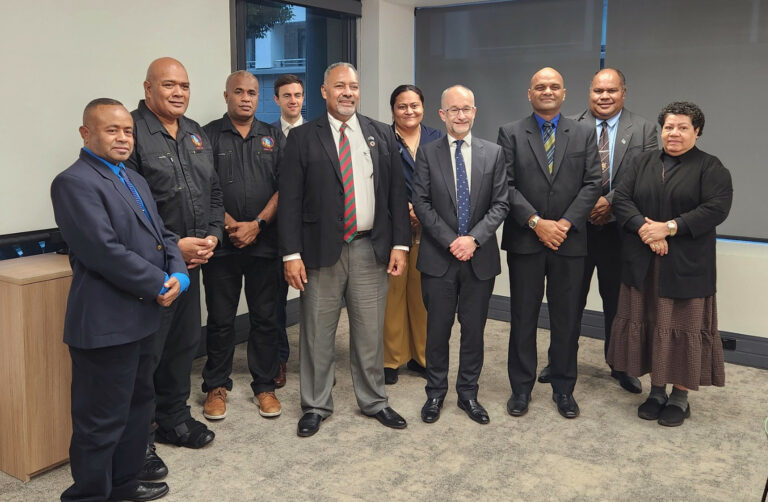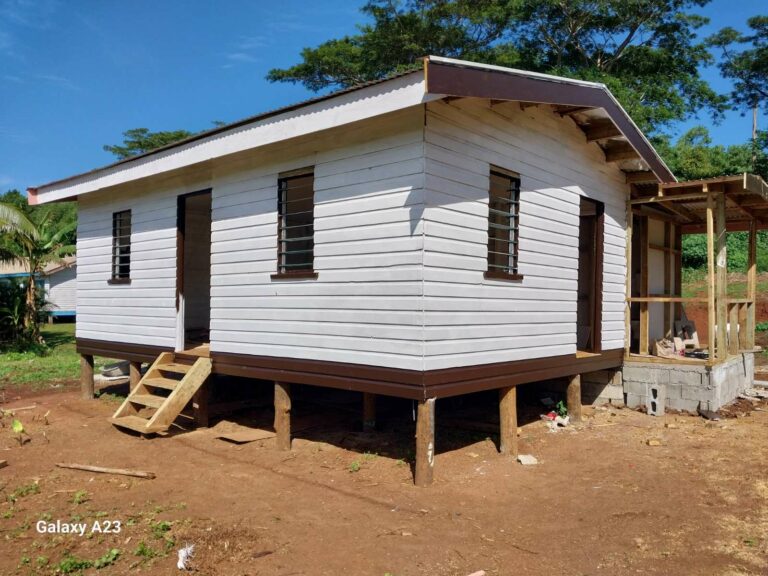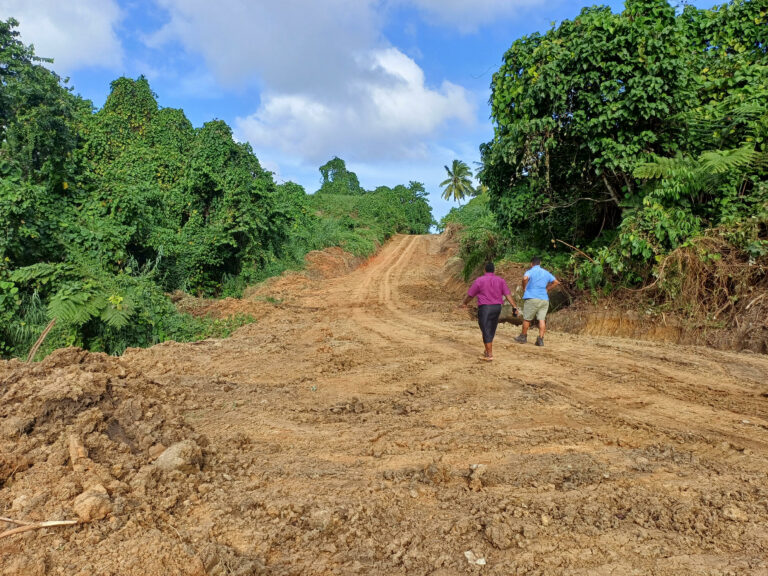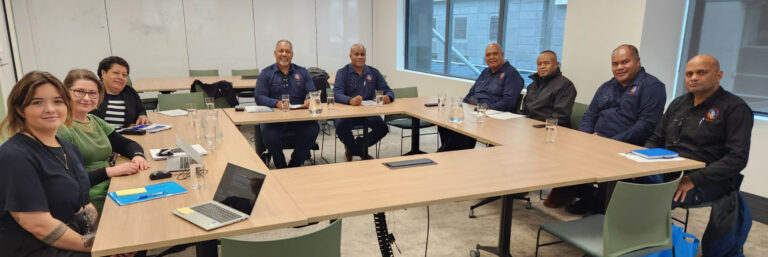
Caption: Commissioner Central Division (CCD) Mr. Josefa Navuku and staff members of the Ministry of Rural and Maritime Development and Disaster Management with community representatives and other key stakeholders at the Community Based Disaster Risk Management (CBDRM) Policy consultation for the Central Division held in Suva last month.
SUVA – The groundwork for the development of Fiji’s Community Based Disaster Risk Management (CBDRM) Policy kicked off in Suva last month with a divisional consultation, targeting community members such as the Turaga ni Koro and District Advisory Councilors (DACs) and key district and provincial level officials from the Central Division.
Led by the National Disaster Management Office (NDMO), similar consultations are expected to be held in the other three divisions, before the NDMO conducts a national consultation.
The proposed formulation of the National CBDRM Policy will strengthen the national regulatory framework for climate change and disasters and give more weight to supporting bottom-up, community-based practical approaches.
In opening the consultation in Suva, Commissioner Central Division (CCD) Mr. Josefa Navuku said key approaches for accomplishing this goal included boosting ecosystem-based interventions, strengthening community early warning systems, adapting developmental approaches, and enhancing community preparedness.
“As community gatekeepers and key stakeholders however, you all play a critical role in implementing this Policy and are ideally placed to inform us on the realities of community based disaster risk management approaches and the best way to go about them. It is therefore essential that you fully engage in the discussions today and tomorrow so that we formulate a practical and contextualized Policy that will inform on the needs and priorities of at risk communities,” Mr Navuku reminded participants at the consultation.
“With your help, Fiji will be better equipped to lessen the effects of climate change risks and disasters, guaranteeing community safety and well-being, by adopting localized strategies and encouraging local, national, and regional collaboration.”
The National CBDRM Policy will support Fiji’s development actors, government, and civil society organisations in strengthening and expanding their efforts to increase resilience to risks associated with disasters and climate change in a coordinated and synergistic way for maximum impact. The proposed policy will also capitalize on the opportunities presented by CBDRM and localization, as well as capacity-building programmes, multi-stakeholder collaboration, and technological integration.
The Policy will be overseen by the Ministry of Rural and Maritime Development and Disaster Management, which will also be in charge of coordinating its development in collaboration with important government agencies and a variety of multiple stakeholders.
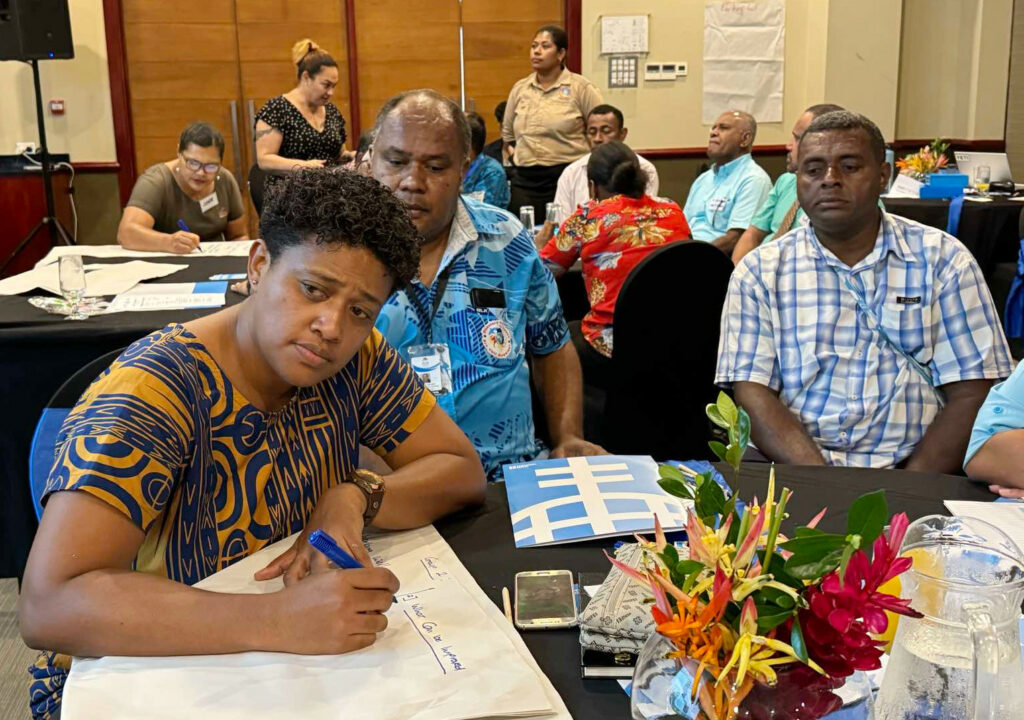
Caption: District Officer (DO) Suva Ms. Kelera Rakavono participates in a group discussion at the Community Based Disaster Risk Management (CBDRM) Policy consultation for the Central Division which was held in Suva last month.


